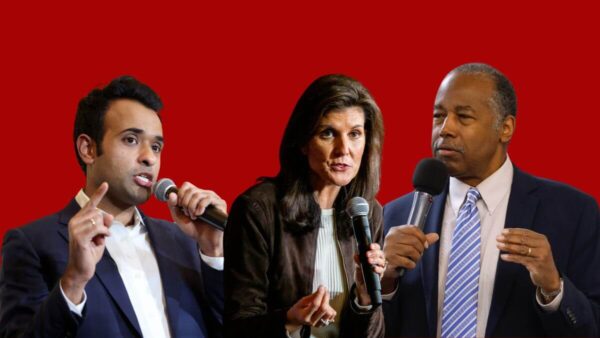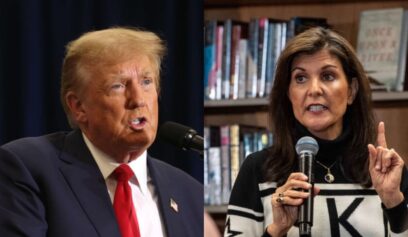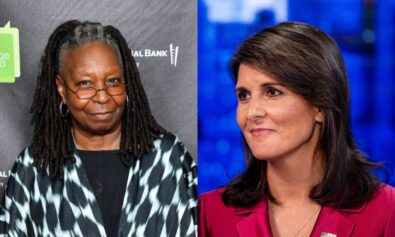Amid the 2024 presidential race, one thing many Republicans have in common is that they struggle with addressing racism in the United States, a key issue that could wreak havoc on the Republican Party.
Many GOP past and present candidates for various offices have long been hesitant to acknowledge issues surrounding prejudices and discrimination against people of color based on race.

Systemic racism, also known as structural racism, is defined as the systems and structures that put certain racial or ethnic groups at a disadvantage in society, according to USA Today. Not only is it about individual discriminatory incidents, but also about the bias embedded in the systems in America.
For instance, systemic racism can affect access to quality education and resources. School districts with more Black students and other people of color often receive less funding and resources than districts with fewer students of color, according to Human Rights Careers.
Nikki Haley
Nikki Haley, the former South Carolina governor and the remaining 2024 GOP presidential candidate challenging former President Donald Trump, has often touched on race throughout her career and on the campaign trail. But her remarks have triggered backlash during the latter, as she had to clarify offensive comments made during a town hall in New Hampshire last year.
Overall, Haley has struggled with her messaging and talking points on the subject of racism, appearing to flip-flop on the subject.
For instance, after a December town hall where she failed to mention slavery had been a cause of the Civil War, Haley later walked back those remarks. And in a recent interview on “The Breakfast Club,” a popular morning show, Haley acknowledged, after being pressed, that the killings at Charleston’s Mother Emanuel African Methodist Episcopal Church were “motivated” by racism. But initially said that the national media “wanted to make it about racism.”
During the campaign stop, Haley responded to a question about her thoughts on the Civil War, saying, “I mean, I think the cause of the Civil War was basically how the government was going to run” and “the freedoms and what people could and couldn’t do.”
She then redirected the question by asking the questioner what he thought the cause was, to which he told her, “I’m not running for president,” CNN reported.
“I think it always comes down to the role of government and what the rights of the people are,” Haley said. “I will always stand by the fact that I think government was intended to secure the rights and freedoms of the people. It was never meant to be all things to all people.”
Haley later told radio host Jack Heath that “I mean, of course, the Civil War was about slavery” after many conservatives and others denounced her comments.
Ben Carson
Meanwhile, Ben Carson, the former secretary of Housing and Urban Development and a retired neurosurgeon, has made several comments in the past about his stance on racism.
Most recently, Carson asserted that America should not be ashamed of slavery and rejected the concept of systemic racism while campaigning for Trump in Iowa. Carson minimized the importance of slavery in American history while highlighting its prevalence in various societies throughout history.
He stated in a 2020 interview with CNN that issues of systemic racism are “very uncommon now,” NewsOne reported. He also suggested that “real” systemic racism doesn’t exist anymore.
In an interview with conservative radio host Dennis Prager in 2015, Carson claimed that most of the racism in the country comes from the Democratic Party, Politico reported. “I’m not sure I agree that there isn’t a fair amount of racism here,” he said in response to a statement from Prager saying the U.S. is the least racist country of those with multiple races.
“There is, but it’s not where you would expect it to be,” Carson continued, “it is mostly with the progressive movement who will look at someone like me, and because of the color of my pigment, they decide that there’s a certain way that I’m supposed to think. And if I don’t think that way, I’m an Uncle Tom and they heap all kinds of hatred on you. That, to me, is racism.”
Vivek Ramaswamy
Another former GOP presidential candidate who has also struggled with the subject is Vivek Ramaswamy, a young, successful entrepreneur and staunch supporter of Trump, who is expected to defeat Haley for the GOP presidential nomination. That said, Ramaswamy recently downplayed the idea of systemic racism in the United States.
In fact, he told “The Breakfast Club” hosts that he thinks systemic racism doesn’t really exist, while taking issue with DEI programs. “I worry we are creating more race consciousness in a way that creates more division rather than less right now,” he said. “And that’s one of my core issues with the so-called DEI.”
Charlamagne Tha God asked Ramaswamy, “Can you admit that there is systemic and structural racism” in the nation right now?
“I have to know what those terms mean,” Ramaswamy said, adding that systemic racism “is a little bit of a cop-out.” But he added that he knows “what racism is.” Despite his rhetoric on race drawing criticism and experts pointing to his disconnect with Black voters, a spokesperson from Ramaswamy’s previous campaign told The Hill that people are welcome to disagree with his statements but that he will always say what he believes.


